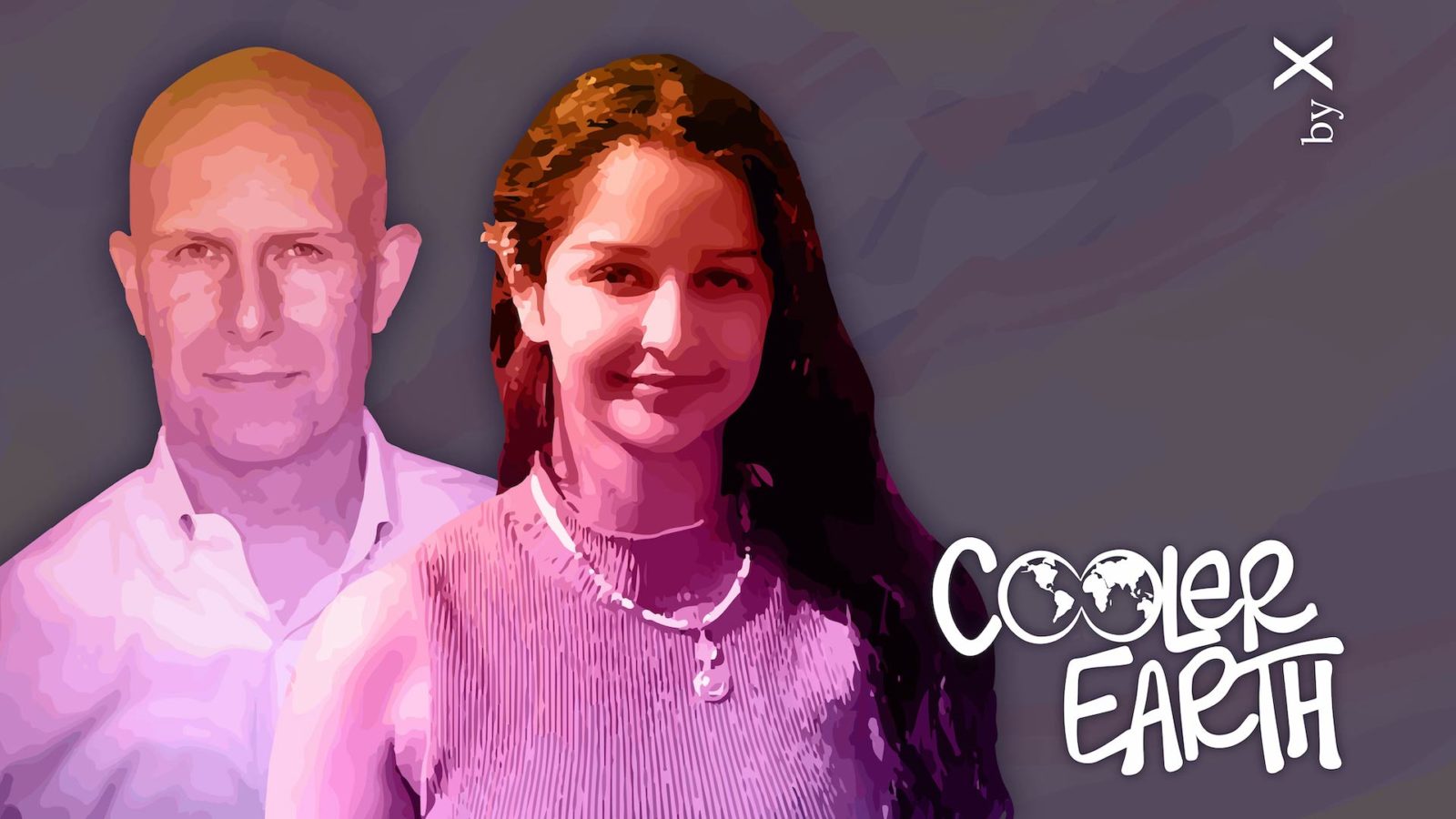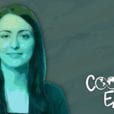Sara Singh and Nathaniel Stinnett on the Environmental Vote
It’s hard to overstate both the chaos and the stakes surrounding this year’s election. We’re currently facing the overlapping crises of an ongoing pandemic that has shifted the way we can carry out the electoral process, an economic crisis greater than we have seen in over a decade, and the ever-present realities of living in a climate altered world like the wildfires in the West, and this year’s hurricane season.
As the climate crisis continues to climb as a top concern for likely voters in the U.S., we sat down with Sara Singh of the Sunrise Movement, and Nathaniel Stinnett of the Environmental Voter Project to understand the growing impact of climate and environmental justice in electoral politics.
Below is a transcript of the interview, edited and trimmed for clarity and brevity.

Maria Virginia Olano (MVO): I know our time is limited, so I will get started now as people continue to trickle in. Welcome and thank you everyone for joining us for this month’s Deep Dive webinar, which will also be our very first live recording of the Cooler Earth Podcast! For those of you who are watching now, welcome! For those of you listening to us on Thursday, welcome as well!
Today, we’re talking about a topic that is most certainly at the top of all our minds, which is the upcoming—or more specifically—the already ongoing election, and the impact that the climate crisis is having in driving voter turnout as well as electoral outcomes. It’s very hard to overstate the significance and the high stakes surrounding this election, not just because of the ongoing pandemic and economic crisis—which has just changed the way we can even carry out elections—as well as the ever increasing climate impacts that we’re seeing right in front of our eyes. Most specifically, this year’s wildfires and hurricane season. So, I can’t think of a better two people to discuss this with than Sara Singh from the Sunrise Movement and Nathaniel Stinnett from the Environmental Voter Project. I’m so thrilled to be able to have the opportunity to speak with you both today, and we’re all so very grateful for your time. We know that you’re incredibly busy, especially right now, so it is much appreciated.
Both of you have incredibly impressive resumes, so I could really go on forever, but I will let you introduce yourself, and tell us a little but about who you are, your background, and your respective organizations!
Our State Climate Policy Network (SCPN) hosts monthly webinars on the latest topics related to climate policy, carbon pricing, and other climate solutions. Explore our past webinars.

Nathaniel Stinnett (NS): Great! Thank you, Maria, and thank you, Sara, it’s an honor to be here with you. And thank you to everybody who is going to be part of this conversation. I’m Nathaniel Stinnett, I’m the founder and executive director of the Environmental Voter Project (EVP). I started EVP almost four years ago after a career in law and politics, where I was running a whole bunch of campaigns, big and small, and was consistently frustrated by something. And that was this: No matter what campaign we were involved in, the number of voters who cared deeply about climate and environmental issues was way, way, way below where it ought to have been — one percent, two percent, three percent. And this had a huge ramification not only on how we ran campaigns, but even when we won it was really hard to lead and govern on climate issues when so few voters cared about it. I started EVP three and a half years ago for one simple reason. We came to realize that the reason so few voters cared about the climate and environment is not because so few Americans do — there are actually tens of millions of American who care so deeply about climate and the environment it’s their number one priority. The reason so few voters cared about it is because the environmental movement has a turnout problem, not a persuasion problem, a turnout problem. We came to realize that environmentalists weren’t voting. What we do at EVP is we identify environmentalists who aren’t voting and then we turn them into voters — that’s it. We are kind of the nerds of the environmental movement. We’re just data analytics and behavioral science experts who spend all of our time and energy focused on individually identifying these nonvoting environmentalists and then leveraging the latest behavioral science to turn them into better voters.
We’re in 12 states, we’ve got over 5,000 volunteers, we were active in 600 elections just last year in 2019, and we’re this year-round behavioral changing organization. We’re just trying to get environmentalists to vote more often, that’s what we do. I’m really excited to talk a little bit about our work and some of our results and most importantly, what we’re seeing on the ground in the middle of this really, really important election.
Learn more about the Environmental Voter Project here.

Sara Singh (SS): Thank you, Nathaniel. It’s so great to get to learn more about you, and I’m so honored to be here sharing the stage with you. My name is Sara, and until recently I was the Action Co-Lead and Media Co-Lead for Sunrise Boston, which is our local hub and the largest Sunrise hub in Massachusetts. We have 600 active members, they range in age from teenagers, high schoolers, to 35 year olds. The primary purpose of Sunrise is certainly to sound the alarm — to activate a greater portion of the population, and bring them into the fold where climate crisis and environmental issues are concerned — but also to support those political campaigns that we’ve identified as deserving our support. We have an endorsement process, and when campaigns — like Bernie Sanders, Ed Markey, Erica Uyterhoeven, and more recently Michelle Wu — meet the criteria, meaning they support the Green New Deal, they support other important policies like the thrive agenda, and they recognize the value of the youth vote.As long as they meet our criteria, we throw our full force behind them. For the Ed Markey campaign, this looked like hundreds and hundreds of Sunrisers around the state turning out to phone-bank, text-bank, raise money, canvas door to door, and rally their personal network. So it really is making climate and the environment the number one issue because it hasn’t been so far. Throughout this call, I’m going to share my perspective on the impact we had on these campaigns and why exactly the environmental vote matters so much. Thank you.
Learn more about the Sunrise Movement and find a hub near you to get involved here.

MVO: I could not have asked for two better people to be talking about this today in the midst of this election. My next question might seem a little obvious, but I would love to hear in your own words what the stakes of this particular election are? Whether that be specifically for the climate and climate justice, or more generally if you would like to share. Sara, if we could start with you.

SS: I’ll start with a little personal story. What activated me personally and pulled me into the climate and environmental activist movement, was the experience of witnessing severe air pollution in the city where I was born, and that was New Delhi, India. The air quality levels there are at toxic levels and it causes a lot of health problems and repsirotaty issues in young and elderly people. I saw a similar lack of air quality in Santiago, where I studied for a year in college. Then, I had the privilege of traveling to the Amazon Rainforest in 2018, and when I came back I saw all this news about the wildfires and the extensive deforestation to the lungs of our planet. All of these experiences really concerned me and I felt that I could no longer continue on the path that I was on. I no longer feel comfortable staying the course of just business, making money, raising a family, all the normal things we expect for our lives. I felt I was called and had a duty to join this activist movement, not only to safeguard future generations, but also for the wildlife and vulnerable populations in the present suffering the greatest impact.

NS: There’s no doubt that because of the nature of the climate crisis, because we’re kind of like rolling towards a cliff here, every year and every election is always going to be our last best chance to do something — it’s just the nature of crises that it gets worse over time. But, there’s no doubt that there was something especially important about the 2020 elections for a few reasons. One, boy have seen how American leadership on the world stage remains indispensable. Regardless of how we may view the United States now, we still are an indispensable actor, and without us leading on things like the coronavirus or climate, very little can get done.
So it is certainly important because there’s a presidential election, but beyond that, all of the state legislators, all the state legislatures, that are going through an election right now, they’re going to set up redistricting for the next ten years. And so we’re going to bake in the political rules of the game that all of us have to live with for the next ten years. That’s obviously going to impact all state policymaking, not to mention how congressional districts are drawn. And then obviously, I think a lot of people on this call know the importance of big city mayors and local policymaking, and they are having a whole string of elections as well. This is a moment in time when all of the stars are aligning in such a way that we’re not going to see for another 20 years. It’s not going to be for another 20 years when redistricting, a presidential election, and all of these other elections all happen at the same time.
You don’t need me to tell you how much further down the line we’re going to be 20 years from now in dealing with all of these crises. 2020 is extraordinarily important, but it’s also an extraordinary opportunity, it’s rare that we have an opportunity to have as big an impact in an election as we’re going to have this November.

MVO: Absolutely. That brings me to the climate crisis as an issue of concern. It has become increasingly, and poll after poll shows, that the climate and ecological crises rank very high as a top priority American voters.
Nathaniel, I’d like to start with hearing from you on this since you have a lot of the data and have written a lot about this — most recently in WBUR about how stunning 12% of likely presidential voters list climate change as their number one priority. Can you tell us a little bit about these numbers, what they mean, and what we can expect them to translate in this election?
“The Climate Voters Are Coming” Read Nathaniel’s op-ed in WBUR on the latest work from EVP ahead of November’s election here.

NS: Absolutely, so first just as an important bit of background. Whether you vote or not in the United States is public record. It is public record, and so any policymaker on the federal state or local level knows who votes and who doesn’t vote. When we’re talking about polling data, it’s enormously important to differentiate between what American adults care about and what voters, or likely voters, care about because — surprise, surprise — politicians don’t care about non-voters. They just don’t care about the opinions of non-voters. It’s literally public record, they know by name and street address who votes and who doesn’t. What we’ve struggled with in the climate and broader environmental movement for many years is that, when you look at all American adults, they are more likely to care deeply about climate in the environment than the people who actually show up to vote. So that gap, that turnout gap, is really important for us to address. That being said, as you mentioned Maria, even when we just look at the likely voters, the news has gotten a lot better.
Let’s start four years ago. In the 2016 presidential election, only 2% of likely presidential voters listed climate and the environment as their top priority. In the 2018 midterm, that had risen to 7%. And now, to be clear, it’s kind of an apples-to-oranges comparison because midterm elections are different from presidential elections, but still that was pretty significant growth. By the time we get to 2019 and 2020, I mean we’re now seeing polling, as you mentioned, showing 12% of likely presidential voters listing climate or the environment as their top priority. So six times as many likely voters as we saw four years ago. And to give you some context, to give you some raw numbers, most people think a hundred and fifty million Americans will cast ballots this year. So if 12% of those 250 million list climate or the environment as their number one priority, that’s 18 million people! That’s like three times the number of NRA members. That is a really big, powerful constituency. But, what’s even more amazing is if you look at the non-voters, there are even more of them who care deeply about climate or the environment. We could literally be unstoppable if we started voting at the rates that NRA members do or even the average Americans do.

MVO: That is absolutely fascinating. And Sara, you of course worked Senator Markey’s campaign, which was nationally reported on as one of these primary contenders where climate was a top issue. It was seen as somewhat of a huge victory for young people and those who showed up to campaign for him over his contender. Can you tell us about your experience on the ground and how you see this playing out in real time in elections?

SS: I’d love to. That was a huge victory for us, especially because, for a long time, the polls were showing that he was not going to win, that Kennedy would beat him — Kennedy had all the money and the name recognition. But, we chose to endorse Markey because we recognized him as our champion. He demonstrated, over his 46 year career in public service, a high degree of integrity and scientific awareness.
I worked on the Markey campaign as an unpaid fellow for four months, and it started in February of this year before the pandemic hit us. I remember clearly, it was a freezing, rainy day and I was holding up a sign in front of the WBUR debate event. Over the next few months, I made 884 phone-bank calls for Markey. Me and the other fellows, some of whom were also Sunrisers, we recruited dozens and dozens more Democrats to join the phone-banking effort, text-bank effort, the canvassing. We collected hundreds of signatures for his nomination forms. We also helped with the data entry, which meant putting dozens of hours on spreadsheets. We wrote letters to the editor, we made videos of ourselves why we chose Markey over Kennedy, and what’s more, we made memes. We brought in our friends and family and it really spread like wildfire, this campaign that was so underestimated in the beginning.

MVO: That is so fascinating and so amazing, and it’s something we see so much more of now. The energy and the time, just the time commitment in itself of young people showing up for these campaigns and in support of climate champions.
I would love to talk about that in particular, which is the changing nature of what we consider ‘power’ — who has the power and how power is acquired in itself. Nathaniel, you were saying politicians care, frankly, only about voters, people who turn out to vote, and that is by no means representative of Americans. I would love to hear from you how you see this evolution of power as young people start to show up in massive numbers and the conversation has shifted. Like you said, in 2016, I remember all of us watching the debates in anger because climate change was not even mentioned. And now, here we are, and in the very first debate not only was it the second or third question, but it was brought up by a Fox News anchor and moderator. How have you seen how that shift over the past four years and what do you think that shift means?

NS: I think at a very deep level most Americans are very cynical about politics. They think ‘oh, politicians do whatever it takes to get elected,’ and I’m not going to tell you you’re wrong. I think you should actually take your cynicism one step further. If politicians care so much about getting elected, that doesn’t mean your vote doesn’t matter — that means that your vote is the only thing that matters. Even in this extremely hyper-partisan moment that we live in, there is still one thing that unites all Democrats and Republicans, and that is boy do they like to win elections. Whether you’re a Democrat or Republican, you love winning elections and so you go where the votes are, you go where the votes are. It’s the basic arithmetic elections, either you go where the votes are or you don’t get to be a politician anymore.
I want to clear, I am not going to claim that Democrats and Republicans are alike — of course they’re not! I’m not going to say that progressives and centrists and and conservatives are alike — of course they’re not — but it’s pretty extraordinary how you see not just for the Centrist Democrats moving left on climate. Let’s take Joe Biden, for example, I mean has there ever been a moment in modern American history where someone wins their party’s nomination and then tacks to the left on an issue like he did on climate. That’s pretty extraordinary. Usually, you win your nomination and then run fast to the center because that’s how you get more votes. But no, these campaigns aren’t dummies. They see where the votes are, and that more than anything is where we get our power.
I’d love to give you an example of the other side of the aisle as well because I think it’s so interesting when you see this with Republicans. There was a race going on in South Florida in the 2018 midterms. It was Carlos Curbelo, who was a fairly moderate climate Republican, and he was being challenged by Debbie Mucarsel-Powell. And the National Republican Congressional Committee (NRCC), so this is the entity that supports Republicans running for congress, started running ads attacking the Democrat for taking a donation from the coal industry. To be clear, it was a completely illegitimate attack. She took one donation from Tom Steyer who, like 10 years ago, invested in a coal company, but that’s beside the point. Believe me, the NRCC doesn’t have a problem with the coal industry, but they decided, ‘you know what, look at all this polling that we’re seeing in South Florida, there’s no way we can win without appealing to environmentalists.’ So, what did they do? They started doing that, and I think that’s so important for us to understand in the environmental movement and in particular in the climate movement, that our power is at its greatest when we express ourselves as voters. No matter how much money the Koch brothers have, at the end of the day that goes towards getting more votes to try to win elections, like the basic denominator that we share is ‘okay, who shows up to vote and who gets the majority of those votes?’ That is where our power lives.

MVO: Sara, I have a question for you and it’s coming in the Q&A. How do we square the fact that what you just said Nathaniel is absolutely correct and it is where power lies, and yet at the same time, because of many reasons — including the fact that we have a winner take all races — we end up with candidates that at times do not excite the base or young people or other issues that basically lead to the disillusionment with the electoral process in general? I’d love to hear from you how you think about this, and how do you continue to advocate for showing up to vote even in the cases where it’s not the best or the most progressive on climate candidate that we would have wanted to see?

SS: The short answer is, if we have to side with a candidate who was not our first choice and maybe not even our fourth choice, we are going to push that candidate. We’re going to demand that we need, that we get a proper climate plan, something as close as possible to the original Green New Deal that we wanted. We didn’t invent the Green New Deal, but we did advance it. We made it a priority in some of the televised debates, and it has become a litmus test and it has required all the candidates who ran this year for president, they also had to come up with climate environmental plans because of this pressure.
The reality is that, at the beginning of the year Sunrise conducted an internal survey, and 76% of our members around the country — you have to know we have 300 hubs, thousands and thousands of members — 76% of them overwhelmingly said they want us to endorse Bernie Sanders. So that’s what we did because his ideas were the boldest. But now the situation is different, and we’re not unhappy with Joe Biden because if you take a look at the climate plan that came out of the Biden Sanders Unity Climate Task Force, it’s a two trillion dollar plan. And they included our Executive Director Varshini Prakash in this plan, and she got to play a role along with Gina McCarthy, John Kerry, AOC — we had a lot of influence that we were able to exert.
This is that pushing and the demands that I was talking about. We’re not going to throw our support behind Joe for nothing, but we did get what we wanted. I’ll quickly share the highlights of this plan. It requires an emissions free power sector by 2035, installing 500 million solar panels in 5 years, planting over 16 billion trees by 2050 — which is very important for natural carbon capture — upgrading 4 million buildings in 4 years to meet the highest energy efficiency standards, conserving 30% of America’s lands and waters. The answer is that he wasn’t there first or third or fourth candidate, but we’re very happy with Joe Biden now.
Read our article on the Biden Sanders Unity Task Force and Biden’s own Clean Energy Plan to tackle a sustainable economic recovery.

MVO: Definitely, and that goes back to what you were saying, Nathaniel, the right kind of candidate getting the nomination and being pushed to actually adopt these policies that were so important for so many off of the electorate and actually as a top issue. I’d love to shift a bit and talk about the climate crisis and how we conceive of policy solutions to it. I think this year, and to be fair for the past couple of years, we have collectively begun to better understand the connections between emissions reductions as a ‘simple thing,’ and at the same time the need to address climate and environmental justice issues. Which, a lot of the time, intersect with civil rights and civil liberties as well. We’ve seen that this year, we’ve seen a huge reckoning in the environmental movement, we’ve seen Sunrise pushing the conversation and being at the front of understanding that climate solutions need to be holistic and equitable, and account for these justice issues.
Maybe, Nathaniel, if you can share with us, how do you see those intersecting priorities and how are they influencing climate as a top issue in its scope?

NS: Great question, and a really really important thing for us to talk about whenever we’re talking about politics and climate politics and climate policymaking. I think it’s important to touch on two things. First, systemic racism subsidizes our fossil fuel economy. We would not still be relying on fossil fuels if coal fired power plants were put in white suburbs. Every step of the way, whether you’re dealing with oil gas or coal, whether you’re extracting it or transporting, or refining it or burning it, it always poisons the air in the water. And we, as a systemically racist society, have decided ‘alright, this is a fine way to work as long as that poison is in certain communities.’ And that approach enables this fossil fuel economy to exist, it’s inextricably linked with every aspect of climate and environmental policymaking.
The second point I’d like to make is we need to go a step further. We don’t just need to understand that most environmental issues are also civil rights issues, I think we need to look at it in the inverse as well. A lot of civil rights issues are, by definition, environmental issues. This is what I mean by that, when we do our research at EVP and find all these people who care so deeply about climate and the environment that it’s their number one priority, let me tell you who they are: They ain’t me. The modern face of the environmental movement is not like white yuppies in fleeces driving around in their Priuses, these people are now much more likely to be Black and Latino than what, they’re much more likely to make less than $50,000 a year than more, and they’re more likely to be young then old. So whenever we see a civil rights issue, whenever anybody is trying to take power away from Black and Brown Americans, they are disproportionately impacting the power of the environmental movement.
That’s what I mean by like not only are most environmental issues also civil rights issues by definition many civil rights issues are disproportionately impacting the environmental movement’s power. Whether talking about voter suppression or a whole bunch of civil rights issues, they’re attacking us, they’re attacking the environmental movement in a way that we don’t necessarily see in other issue constituency groups.

MVO: That makes a lot of sense and thank you for sharing that framing and that shifting kind of mindset to understand that these are kind of a feedback loop that also affect us in this way. Sara, I would love to hear from you about the issue, and also we can touch on one of the questions coming in through the Q&A, which is how do you conceive of young people or young voters as not a monolith, but maybe diverging in some of these issues as well?

SS: I absolutely agree with what Nathaniel said about that there’s an inextricable link between racism and environmental injustice. You can see this in the placement of toxic waste sites, you can see it in poor neighborhoods that are mostly people of color and tend to have the lowest air quality, and the greatest amount of noise and traffic congestion. You can see it in Alaska, where there was recently the decision by the Trump Administration to open up 55% of the Tongass National Forest, which is our largest forest in the United States, over half of that is not open to logging, mining, and development. And the people who are going to be affected the most adversely are the Indigenous communities there, who rely on the wildlife for subsistence hunting for fishing, and the salmon that originates in that area will decrease significantly in the coming years, so it will no longer be available to those people who have always lived there.
Regarding the question of whether young people are monolith, certainly they’re not. But, my personal experience as a member of Generation Z is that we do have a great deal of harmony, of agreement, and we see this not just in Sunrise, but growing up through high school, college, and now in my master’s program. Most people in my age group are leaning towards progressive ideas, but especially climate, environmental ambitious action and they support the Green New Deal, even though it’s not perfect, even though more specific plans and budgets are needed, it is a great start. So while I would agree that if you were not a monolith, I think we have more harmony than some of our previous generations.
Opening Alaska’s Tongass National Forest, which consists of nearly 9 million acres of wilderness and the world’s largest temperate rain forest, could have serious implications for both wildlife and the climate. Read more.

MVO: Definitely, and I think we see that not just in the U.S. but around the world with youth led movements and activism, which is a great sign for the rest of us. One thing that I think we have to touch on and talk about is, and it’s coming through the Q&A as well, is the issue of voter suppression and disenfranchisement. Because we can talk about what would be a perfectly functioning democracy and voter turnout being the issue we need to tackle, but we know that’s not the reality and that’s not the case. And a lot of people are on the receiving end of voter suppression, and other forms and tactics to take away their basic right to vote.
So I’m curious to hear from you, Nathaniel, and maybe from you, Sara, after, if you can share what is the overlap between these folks we know are environmentalists and care about climate as a priority, and are on the receiving end of voter suppression tactics?

NS: It’s enormous. The overlap is enormous. In every single one of the EVP states, where we do these huge predictive models and poll 20,000 people per state, we have a really good understanding of who these super environmentalists are. And in every single one of them, Black, Latinx, and Asian Americans are much more likely to list climate and the environment as their top priority than white people. As I said before, if you make less than $50,000 you’re much more likely to list it as a top priority than people who make more. And young people are much more likely to care about climate in the environment. So, what do those three groups have in common? People of color, poor people, and young people, they are always the target of voter suppression efforts.
When you look at any voter suppression efforts by any local, state, or federal government, they’re targeting one if not all of those three groups. Voter suppression is a big deal for the environmental movement, even if no one knows that you’re targeting environmentalists. It isn’t like people are twiddling their mustache and saying ‘let’s get those environmentalists.’ No, they’re trying to suppress votes for a whole bunch of reasons, but it has a disproportionately large impact on the environmental movement. Which is part of the reason why, at EVP, we run hundreds of randomized control trials each year figuring out which messages work best with which subgroups to get them to vote, and we send them digital advertisements, in direct mail, and things like that. But, when we get towards an election like this presidential election, we’re also spending an enormous amount of time each day calling and texting people not only with those behavioral science informed messages, but also hold their hands and help them through the logistics of voting. When you’re in a pandemic, with a kneecapped postal service, and people are trying to make it harder for you in particular to vote, you need people to help you through the process, tell you how to do it, and how to fix your ballot if it was rejected and things like that. It’s a hard process, but it’s a hell of a lot easier than losing an election so we’ve got to do it.

MVO: Sara, is there anything that you would like to add around that and maybe some of the other things that you personally have been doing to battle some of these kinds of overlapping issues of voter turnout, but also voter suppression?

SS: I want to start by asking two questions that we young people, especially in Sunrise, have been wondering. Why is it that all people, when they turn 18, are not automatically registered to vote? Wouldn’t that save a lot of time, effort, paperwork? That would really simplify the process, but this intuitive idea just hasn’t happened and that’s because there are some politicians who don’t benefit from higher turnout from young people or higher turnout from people of color. One really clear example is the date of the Democratic primary that was this year September 1st that’s move-in day for college students, so it’s a real inconvenience for people who are moving across the city, across the state hauling all their stuff to do to be able to participate in the vote because it was intentionally placed on this day to make it more difficult for them. The way that we’re fighting for this is there’s now a growing movement to lower the age of voting to 16 or 17, to make it automatic as well, to move the primary date to something much more accessible to all people. And another important thing that we’ve just now lent out support to is ranked choice voting.
Learn more about H.2836, An Act re-powering Massachusetts with 100 percent renewable energy.

MVO: Definitely. I think there’s just so many things that when either think about deeply or learn about make a lot of sense. Like you both were hinting at, this is something that is being intentionally done in circumstances to precisely diminish the power of certain people in this democracy, but it’s certainly something that we have to keep our pressure on not just in this election, but in the future and forever.
Which brings me to my next question. In reality, all that we have been talking about in this election, the ultimate goal is truly about policy change and moving the progressive agenda forward. Getting people elected should just be the first step and so my question is, how do both of you think about keeping pressure on while people are in office and in between elections, so that we can actually see those campaign promises being fulfilled?

NS: EVP is not a policy shop, we really just are laser focused on getting people to vote. But, I’d like to bring up a few things that I’ve experienced and that we do at EVP and that I know are important. The first is: Election day is actually the only day each year when no policy is made. All the policy is made in the intervening weeks and months and years between elections. But, politicians are still thinking about the next election. And it’s so important for people that understand that if you think you’re awash in polls now, wait until November 4th, wait until November 10th, wait until November 20th. You think people are going to stop polling? No! Politicians at the state, local, or federal level are always doing market research, because just because you win an election doesn’t mean you can snap your fingers and get whatever you want. They then need to decide what we are going to spend our precious political capital on, and what helps them make those decisions is polls of voters. Not polls of non-voters, polls of voters.
The first thing to understand is it is enormously important to do a lot of advocacy work, my guess is Sara’s going to mention some of the amazing advocacy work that Sunrise does, but politicians also care about that political power that you’re always able to bring from election to election to election. Look at the NRA, I know I brought them up before, the reason they’re so powerful isn’t because they have these like lobbyists with silver tongues who just magically convince you to do whatever they want, no! Their people do it like it’s their job. So when an NRA lobbyist shows up at your office and says we want X, Y, and Z — the politicians jump because they want to win elections.
The second thing I’ll just say is we need to pay attention to all of the less sexy local and state elections too. Yes federal policy is important, but big city mayors can save the planet with changes to building codes, zoning codes, parking regulations, and things like that, so we need to start showing up in all of these elections because if the only people who show up for a mayoral election are the ones who care about potholes and public schools, what do you think the mayor is going to care about? What do you think he or she is going to spend their political capital on. Climate voters need to start showing up in every election, even races for library trustees. We’ve got to be there, we’ve got to be there.

MVO: Definitely. Sara, would you like to share some of those other advocacy tools and things that that you and sunrise are working on in between elections, and to hold those who do get elected to to account to their promises?

SS: There’s two big fun ways that we hold our elected officials accountable. The first one is bird-dogging, and that is where you confront the politicians, ideally on camera. So if they’re out at an event, if you see them in public, if you can catch them, then you ask them those difficult questions. The kinds that they would prefer to avoid. We did this with Joe Kennedy and we have done this also with Nancy Pelosi, and that became a viral moment. And we use those viral moments to our advantage. We need everybody, all those voters and the public at large, to understand where the official stands because unless we confront them on camera and make it go viral on social media, people just won’t know. And then the official has no incentive to work harder to push themselves towards a more ambitious agenda.
The other method is lobbying. Before I start lobbying, I saw that it was just something that corporations do, but no we also have activist lobbyists and I was part of a campaign that worked on this for eight months in regards to a bill called H.2836 — which was aiming to get a hundred percent renewable energy in Massachusetts by 2045, and renewable electricity specifically by 2035. This was a bill proposed by Rep. Garballey and Rep. Decker, so we took it and ran with it. We decided we have to make this happen, we have to put this in the budget as an amendment, and if we need to talk to every single Democrat state rep and some Republicans we’re going to do it. In the end, we talked to 37 of them, 23 agreed to sign our pledge, which requires them to stand up for roll call votes and in front of their colleagues in the State House lend their support. We did what we had to do and we went above and beyond the minimum requirement, which was 16 reps anyway.
In the end we failed, but we learned a lot from that eat month process, and it’s actually not over yet we still have another chance. We’re going to keep running with it.

MVO: I think that story also shows the misconceptions that a lot of people tend to have about the political process, and even the lobbying process, before engaging in it. It’s often something that you see as very removed from yourself. Like you said something, big, evil corporations engage on, but in reality it can and should be the labor and the issue that citizens — regular, concerned advocates — are also pushing to do and get engaged in.
I would love to talk about specific strategies. Nathaniel, I know you guys — you call yourselves the ‘nerds’ — run a lot of tests around messaging and what gets people to vote, and I know this is something that is a lot of our minds with 28 days left. What are some of the winning strategies to get either loved ones or people in our lives out on the polls and voting?

NS: First, it’s just important to frame what I’m going to be talking about. What we do not do, the Environmental Voter Project, is try to convince people to care more about climate or the environment. That’s a completely different type of messaging, we don’t focus on that, honestly it’s a lot harder which is why we bypass it. What we do try to do is go after people who don’t need their minds changed, they just need their behavior changed. It’s purely behavior change, get out the vote messaging.
What we found works best — and not just us, but a whole bunch of behavioral psychologists, sociologists, and behavioral economists, is that surprise, surprise, it doesn’t really work when you try to rationally convince someone of the importance of voting. We like to think of ourselves as rational, reasonable, logical people, but we don’t approach most of our behavior as a transaction. It’s not like we’re sitting there making a cost-benefit analysis before voting saying things like ‘I really want such-and-such to win,’ and it doesn’t take that much time or effort to vote so sure I’m going to vote.’ Instead, most behavioral scientists have realized we are much more social beings, we’re social animals, and the active voting has much more to do with expressing ourselves than some transactional value. So what do I mean by that in a non-academic sense? I mean the things that always work best are ones where we try to figure out who these people want to be, how do they want to be viewed? What we do at EVP is we take advantage of societal norms that we know people buy into. One example is peer pressure. We’ll send people text messages saying ‘Hey, Maria, did you know last time there was an election, 73 people on your block of Main Street turned out to vote?’ Just juvenile crap that we would have heard on the playground in 4th grade, but it sends turnout through the roof. If you feel that everybody is doing something, you don’t want to have FOMO (fear of missing out) — you got to get involved! One of the most important things that all of us can do in the climate movement this election season is understand the social capital that all of us have.
All of your friends are looking to you as an example of what appropriate behavior is, and so you need to be loud and proud about the importance of being a voter. Talk about how you’re voting on social media all this time, make everybody think ‘Oh, well if Maria is voting then clearly it’s important for environmentalists to vote’ or ‘If Sara is voting, how many of my classmates are voting?’ They need to see this as a societal norm, that if they don’t then they are running counter to these aspects of their personality that are important to them. If we view things in that context, we will have much much more power. Don’t hide your light under a bushel here, make sure that everybody knows that you are voting, that you are a voter, and they need to actively say ‘I’m different, I’m not doing to vote,’ because that makes it hard for them.

MVO: That is so fascinating and so funny. Every time I hear you talk about these strategies, I find it so brilliant. But like you say, it would seem juvenile but it’s so important to understand what it is actually driving people to change their behaviors and why. On that note, you said it’s a much harder job to get people to actually care about this issue, Sara, I would love for you to talk to us about how you do that? How have you crafted messages that you see resonate with people — either as other young activists to join you or as the audience that you were directing the activism to?

SS: How do we disseminate a compelling persuasive message? The key for Sunrise has been personal narratives, storytelling. When we organized massive demonstrations like the December 6th Climate Strike, thousands of people in Boston and then hundreds within the state house, and I was part of that group. I got arrested with 26 other people because we insisted that we are going to talk to the governor, Governor Baker and we demand that. In the end, he was hiding in a little secret part of his office, he didn’t want to meet with us and we overstayed our welcome. We were there about 20 minutes after the statehouse closed, so we got arrested for trespassing. But, it was an opportunity for us to tell our stories, and we used that. We had about, as I recall, at least 10 people came up in front of those crowds and told their personal stories in the form of speeches. All of this was captured by the press, reporters that we invited and all over social media — Sunrise National picked it up and elevated it. We also did this same maneuver in the September Climate Strike, even bigger turnout in the City of Boston. Another key part of spreading the message, really bringing it home in the minds of the people we want to reach, is it is helpful to tell people that what is really required is about 3.5% of the population at minimum needs to be politically activated. No social movement in history has failed that reached this minimum. If you look at civil rights, women’s suffrage, all the great movements of the past that we studied in history, they succeeded because they managed to tap into this key Tipping Point — the 3.5% minimum of the population must be activated. When you think of it in these terms, it’s not so intimidating. And people, when they hear that, they realize that going out into the streets joining the strike it’s not really so demanding and it is impactful. In the U.S., I believe it’s about 10—11 million people we need to reach at minimum.

MVO: You’re absolutely right. Those stories and the media, and what we’ve come to know Sunrise as is this collective of young voices who were so deeply concerned who, by sharing their stories, make some of us also feel seen and represented, and that is truly invaluable.
Our time is almost over, which is pretty crazy that this has gone so fast. We started this conversation by talking about the stakes of this election. I would love to end it by hearing from you, in your own words, what does the future you’re working for look like if we succeed and if we do things the right way? What does that future look like? Nathaniel, do you want to take a stab at this one first?

NS: Obviously there are an enormous amount of positive health impacts and environmental impacts, and just safety impacts and security impacts. But, to be honest, what I think of a lot when I think of a successful future or a hopeful future is pride — it’s just pride. Wouldn’t it be awesome to be a generation of heroes. Wouldn’t it be great to look back and just feel this pride about doing something good, not just for your children or their children, but just doing something good. Just coming together as a community, or as many communities, and working hard and accomplishing something that makes a whole bunch of other things better. I don’t think about various levels right now, I don’t think about clean air or things like that, it is more about like wouldn’t I like to be the grandfather who can tell his kids about this stuff? Wouldn’t I want to have the same pride that the generation that stormed Normandy felt or things like that? That’s what I think about. I want us to be heroes like that.

SS: I would add to this that what gives me hope is the facts. Let me share some of the really cool ones with you. If we can reforest 1.2 trillion trees, which sounds like a lot, but consider that we have three trillion right now globally — we used to have six trillion. If we can bring back about 1.2 trillion trees, that would cancel out a decade of carbon emissions. That’s progress. If we can pass something in the future like H.2836, that increase of home and Business efficiency would reduce energy consumption by 40 to 60% by 2050. With solar panels on a rooftop, we could generate 47% of Massachusetts electricity from solar alone. Fully harnessed offshore wind could generate more than 19 times as much electricity as Massachusetts is already consuming on an annual basis. There is hope in these policy tools, and the wave is coming.

MVO: Absolutely, and I will just share — people who’ve listened to me before know that I say this a lot — but for me, it is talking with people like yourselves. Who I’m lucky enough to talk with and be colleagues with every single day, who are completely committed and dedicated to seeing this through and actually making this a reality and a future where we have the rights and dignity of all people.
With that, one more time, I want to say thank you. I am so grateful for your time, for your work, for your brain, and for sharing that with all of us today. Keep up the hard work and let’s keep working on this election.









